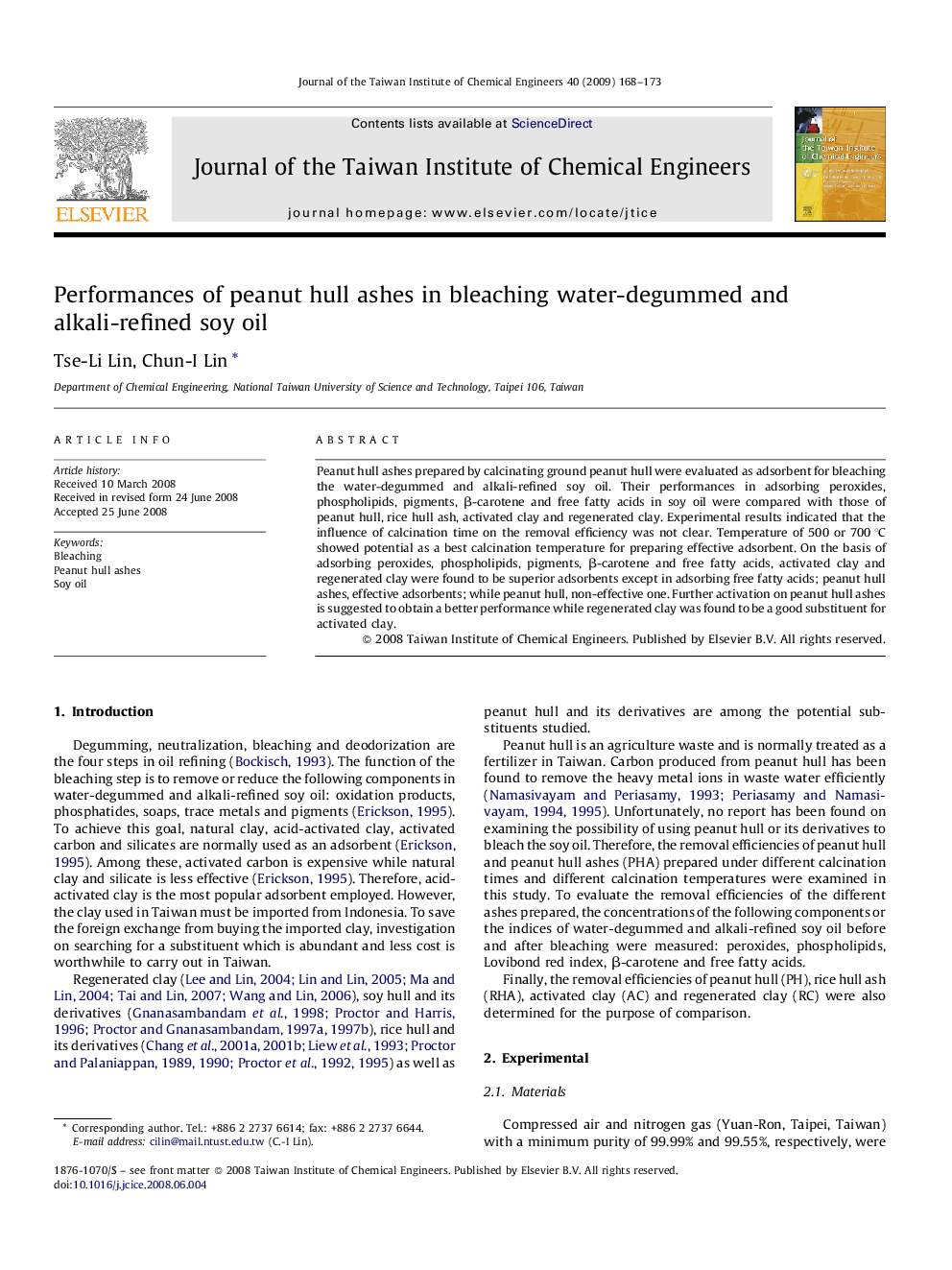| Article ID | Journal | Published Year | Pages | File Type |
|---|---|---|---|---|
| 692002 | Journal of the Taiwan Institute of Chemical Engineers | 2009 | 6 Pages |
Abstract
Peanut hull ashes prepared by calcinating ground peanut hull were evaluated as adsorbent for bleaching the water-degummed and alkali-refined soy oil. Their performances in adsorbing peroxides, phospholipids, pigments, β-carotene and free fatty acids in soy oil were compared with those of peanut hull, rice hull ash, activated clay and regenerated clay. Experimental results indicated that the influence of calcination time on the removal efficiency was not clear. Temperature of 500 or 700 °C showed potential as a best calcination temperature for preparing effective adsorbent. On the basis of adsorbing peroxides, phospholipids, pigments, β-carotene and free fatty acids, activated clay and regenerated clay were found to be superior adsorbents except in adsorbing free fatty acids; peanut hull ashes, effective adsorbents; while peanut hull, non-effective one. Further activation on peanut hull ashes is suggested to obtain a better performance while regenerated clay was found to be a good substituent for activated clay.
Related Topics
Physical Sciences and Engineering
Chemical Engineering
Process Chemistry and Technology
Authors
Tse-Li Lin, Chun-I Lin,
